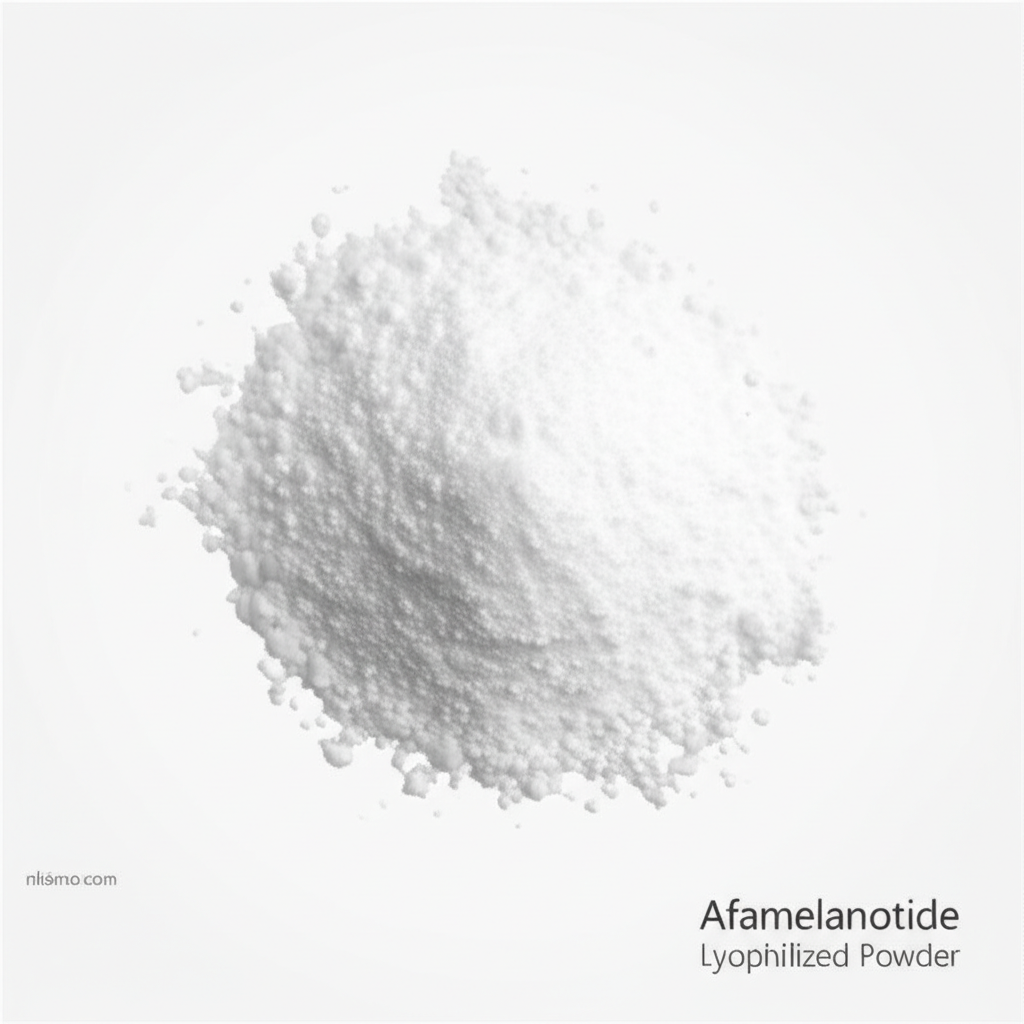Afamelanotide (MT-1) Lyophilized Powder: Enhancing Pain-Free Light Exposure
Discover the science behind afamelanotide and its role in improving light tolerance for EPP patients.
Get a Quote & SampleProduct Core Value

Afamelanotide Lyophilized Powder
Afamelanotide, also known as MT-1, is a synthetic peptide that mimics the action of the body's natural alpha-melanocyte-stimulating hormone (α-MSH). Its primary function is to stimulate melanocytes, leading to increased melanin production, which offers significant photoprotection. This makes it a key compound for individuals suffering from conditions like Erythropoietic Protoporphyria (EPP), where it helps to increase pain-free light exposure.
- Explore the benefits of afamelanotide for erythropoietic protoporphyria, a condition marked by extreme sensitivity to light.
- Understand how what is afamelanotide mt-1 works by activating the melanocortin 1 receptor (MC1R) to boost melanogenesis.
- Learn about the key features of afamelanotide cas 75921-69-6, presented as a high-purity lyophilized powder.
- Delve into how does afamelanotide work to reduce sun damage and improve skin's response to UV exposure.
Key Advantages
Enhanced Photoprotection
The activation of MC1R by synthetic peptide afamelanotide promotes melanogenesis, leading to increased melanin in the skin, which acts as a natural shield against UV radiation.
Improved Light Tolerance
For patients with EPP, afamelanotide significantly increases the duration of pain-free exposure to sunlight, enhancing their quality of life by reducing photosensitivity.
Research-Grade Purity
Available as a high-purity lyophilized powder, afamelanotide mt-1 lyophilized powder is suitable for advanced research and development in pharmaceutical and dermatological applications.
Key Applications
EPP Treatment Development
Clinical research focuses on using afamelanotide to manage the severe light sensitivity associated with Erythropoietic Protoporphyria, aiming to improve patient outcomes.
Photoprotection Research
Investigating the peptide's ability to protect skin from UV damage by stimulating melanin, a crucial factor in reducing DNA damage and oxidative stress.
Dermatological Studies
Exploring potential benefits for various skin-related conditions by leveraging afamelanotide's influence on melanogenesis and skin repair mechanisms.
Peptide Synthesis and Analysis
Utilizing afamelanotide cas 75921-69-6 in laboratory settings for research into peptide synthesis, characterization, and interaction studies.
